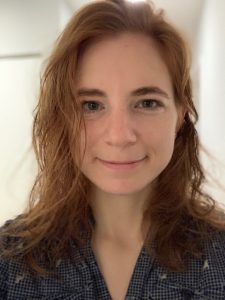
The Department of Bioengineering at the University of Pennsylvania is proud to announce the appointment of Sydney Shaffer, Ph.D., as an Assistant Professor of Bioengineering. She shares a joint appointment with Pathology and Laboratory Medicine. Originally from Atlanta, GA, Dr. Shaffer received her B.S. in Chemical Engineering from Georgia Institute of Technology, coming to Penn to complete her M.D./Ph.D. work in Bioengineering and the Perelman School of Medicine. After graduating in 2018, she conducted her postdoctoral work at Penn in Cancer Biology with Dr. Junwei Shi.
Dr. Shaffer’s research is is focused on understanding how differences present in single-cells can generate phenotypes such as drug resistance in cancer, oncogenesis, differentiation, and invasion. Our approach leverages cutting-edge technologies including high-throughput imaging, single-molecule RNA FISH, fluorescent protein tagging, CRISPR/Cas9 screening, and flow cytometry to investigate rare single-cell phenomena. Further information can be found at www.sydshafferlab.com.
In addition to her exciting research, Dr. Shaffer will be an enthusiastic new member of the Bioengineering Department community. In the short term, she will be taking over the popular class BE 400 (Preceptorships in Bioengineering) which gives undergraduates the rare chance to shadow renowned physicians over a period of ten weeks. She will also serve as a faculty advisor as well as a mentor to the lucky students in her classes and lab.
Dr. Shaffer says that, “With my research interests and training at the interface of engineering and medicine, I am thrilled to be part of the highly interdisciplinary community of Penn Bioengineering.”
“Sydney has a unique combination of creativity and impact in her work,” says Solomon R. Pollack Professor and Chair Dr. David Meaney. “Her work to untangle the secrets of how single cancer cells can develop resistance to a cancer drug — therefore leading to a return of the cancer — is nothing short of stunning. We are incredibly fortunate to have her on our faculty. ”
